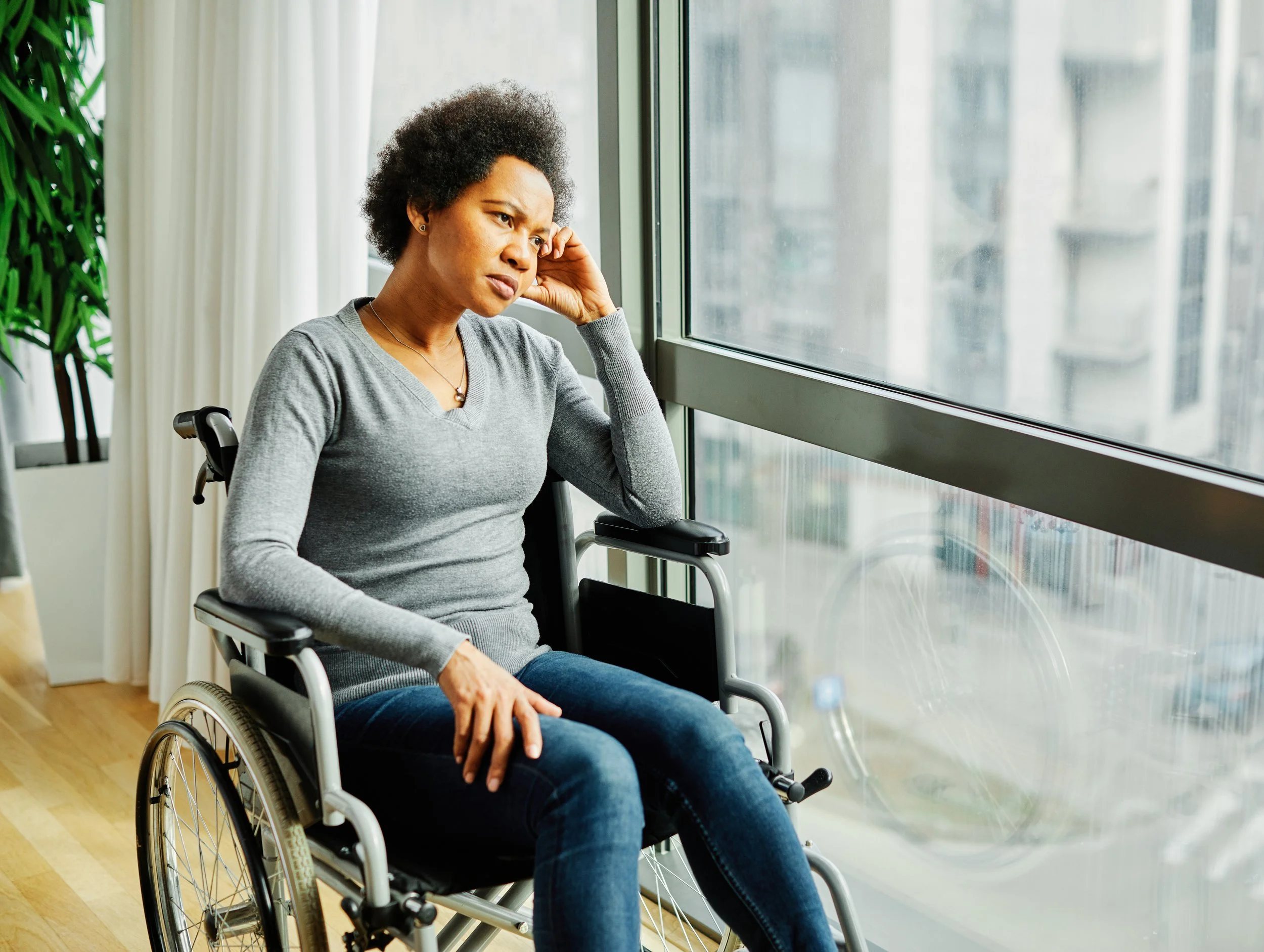The Emotional and Psychological Toll of Catastrophic Injuries in Houston
Catastrophic injuries don’t just change lives—they often shatter the very foundation of what life once looked like. If you or someone you love has suffered a life-altering injury in Houston, you're likely already familiar with the physical challenges: pain, surgeries, rehabilitation, and long-term care. But what’s not always discussed—and what deserves just as much attention—is the emotional and psychological impact that follows.
Injury affects more than the body. It can strain relationships, alter personalities, cause deep emotional trauma, and lead to lasting mental health conditions like depression, anxiety, and PTSD. And for families, the psychological ripple effect can be just as powerful.
Understanding the full impact of catastrophic injuries—especially in the fast-paced, high-risk environments of Houston—is the first step toward recovery and justice.
What Is a Catastrophic Injury?
A catastrophic injury is a severe injury that permanently impairs a person’s ability to perform daily functions. These injuries often include:
Traumatic brain injuries (TBI)
Spinal cord injuries
Severe burns
Amputations
Multiple fractures
Crush injuries
Loss of senses (hearing, vision)
Catastrophic injuries are common in car crashes, truck accidents, industrial or petrochemical accidents, and workplace incidents—all of which are frequent in Houston’s busy roadways and major employment sectors like oil, gas, and construction.
More Than Physical: The Hidden Trauma After a Life-Changing Injury
The emotional and psychological impact of a catastrophic injury can be just as debilitating as the physical damage—sometimes more so.
1. Loss of Identity and Independence
Many injury survivors report feeling like they've lost their identity. If you once identified as an active parent, a dedicated worker, or an athlete, an injury can strip those roles away. Simple tasks like driving, walking, or bathing can suddenly require assistance, leading to feelings of helplessness and frustration.
"After a catastrophic injury, clients often struggle most with the sudden loss of control over their lives. Helping them reclaim their dignity is just as important as pursuing their legal rights."
2. Depression and Grief
People dealing with catastrophic injuries frequently experience profound grief—not only over what happened, but over the life they had before. Depression can become a serious issue, especially when combined with pain, medication, or loss of social interaction.
According to the CDC, approximately 1 in 3 adults with a disability experiences depression—a rate nearly five times higher than that of adults without disabilities.
Source: CDC Disability and Health Data
3. Anxiety and PTSD
Survivors of traumatic events—such as truck accidents or industrial explosions—often develop post-traumatic stress disorder (PTSD). Flashbacks, insomnia, and hypervigilance can make daily life incredibly difficult. Even something as simple as driving past the site of the accident can trigger overwhelming anxiety.
Family members may also suffer from secondary trauma, especially if they witnessed the accident or have become full-time caregivers.
The Psychological Strain on Families and Caregivers
When a loved one experiences a catastrophic injury, the entire family is affected. Roles shift, responsibilities multiply, and emotional bandwidth shrinks. Marriages can become strained, children may feel neglected, and caregivers often face burnout.
“Family caregivers are the unsung heroes after a catastrophic injury. But without support, they can quickly become overwhelmed and emotionally exhausted.”
In many cases, the injured person and their family are navigating not just grief—but a complete upheaval of their lifestyle, finances, and emotional equilibrium.
The Importance of Psychological Support in the Recovery Process
Healing after a catastrophic injury must include mental health care. Unfortunately, it’s often overlooked in favor of physical recovery.
Types of Emotional and Psychological Support:
Therapy & Counseling: Regular sessions with a psychologist can help with grief, depression, trauma, and adjustment.
Support Groups: Group settings provide a sense of community and shared understanding.
Family Therapy: Helps families learn to communicate, cope, and support one another effectively.
Rehabilitation Counseling: These counselors help injured individuals build confidence, set goals, and plan for the future.
In Houston, several respected institutions—including TIRR Memorial Hermann and UTHealth—offer integrated psychological and physical rehabilitation services. Don’t hesitate to ask your provider about incorporating these into your care plan.
Financial Stress Makes Emotional Recovery Even Harder
The psychological burden of a catastrophic injury is often compounded by financial stress—especially if the injured person was the primary income earner.
You may be facing:
Mounting medical bills
Costs of in-home care or medical equipment
Lost wages and reduced future earning capacity
Home renovations to accommodate mobility devices
Travel costs for specialist treatment
This stress can lead to increased anxiety, relationship strain, and worsening depression, all while trying to physically heal.
That’s why working with an experienced injury attorney is about more than just a lawsuit—it’s about rebuilding your life.
Pursuing Justice Isn’t Just About Compensation—It’s About Closure
If your injury was caused by someone else’s negligence—whether it was a reckless driver, a careless employer, or a dangerous product—you have the right to pursue a legal claim.
While no amount of money can undo the emotional trauma you’ve suffered, a successful personal injury claim can help:
Cover medical and psychological treatment costs
Ease financial strain on you and your family
Provide resources for long-term recovery
Offer a sense of justice and closure
“Holding the responsible party accountable can be a powerful part of the emotional healing process. My job is to help families find peace as well as justice.”
What To Do If You’re Struggling After a Catastrophic Injury
If you or your loved one is dealing with the emotional and psychological toll of a catastrophic injury, don’t suffer in silence. The pain you're feeling is real—and you don’t have to carry it alone.
Here’s what you can do right now:
Seek mental health support from a licensed therapist familiar with trauma recovery.
Talk to your doctor about symptoms like depression, anxiety, or sleep issues.
Look into local support groups in Houston for spinal cord injuries, TBI, or caregiver burnout.
Document everything—including emotional challenges. These can be relevant in a legal claim.
Speak with a personal injury attorney who understands the full scope of what you're facing.
Amy Dunn Fights for the Whole Person—Not Just the Case
At the law office of Amy Dunn, every client is treated like family. Amy is deeply committed to understanding not just what happened to you, but how it’s affected your life—physically, emotionally, and financially.
She has years of experience representing victims of catastrophic injuries across Houston and Texas. Whether your injury happened on the road, at work, or due to someone’s carelessness, Amy will work tirelessly to help you seek the maximum compensation available.
And she’ll always treat you with compassion and respect—because this isn’t just a case. It’s your life.
Let’s Rebuild This Together
If you're facing the emotional and psychological weight of a catastrophic injury, reach out today. You deserve compassionate legal guidance and a dedicated advocate who will walk beside you every step of the way.
Contact Amy Dunn now to schedule a confidential case review and take the first step toward healing.

